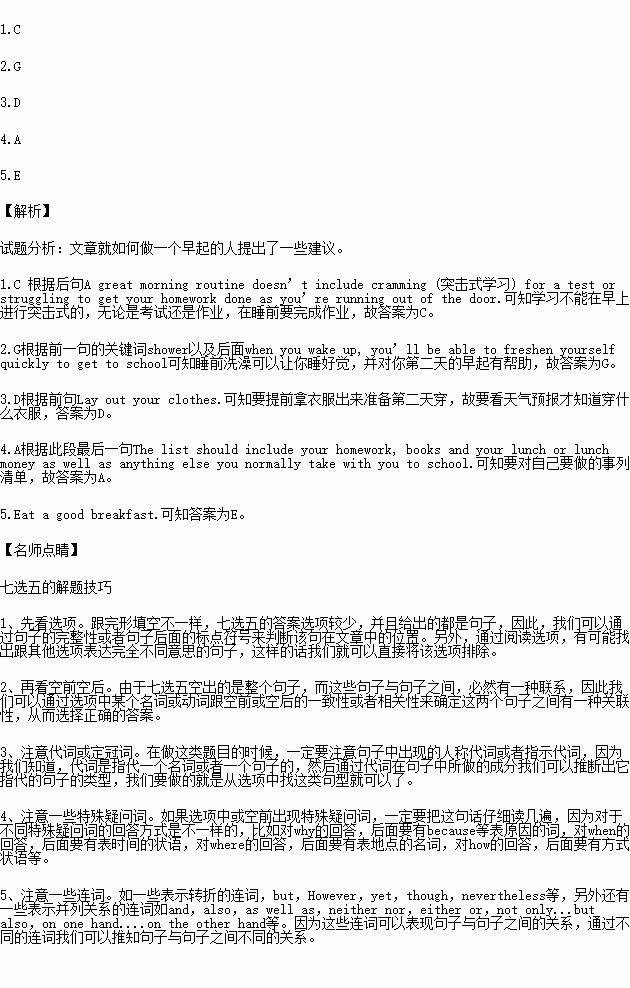题目内容
第二节.根据短文内容,从短文中的选项中选出能填入空白处的最佳选项。选项中有两项为多余选项。
It’s not easy to just get up and go if you’re not a morning person. But with some preparation, you can have a great morning routine (常规) before school, which can also make for a good day.
__1._ A great morning routine doesn’t include cramming (突击式学习) for a test or struggling to get your homework done as you’re running out of the door.
Shower the night before. __2._ And if you can, do your hair the night before so when you wake up, you’ll be able to freshen yourself quickly to get to school and get on with the day.
Lay out your clothes. __3.__ Make sure to lay out everything you need, including your socks and shoes. Another thing is hair. If your school has a preference (偏爱) of what you do with your hair, be sure to respect that.
_4._ It helps in the morning if you have something in front of you to check off as you’re walking out of the door. The list should include your homework, books and your lunch or lunch money as well as anything else you normally take with you to school.
Eat a good breakfast. __5._ Eating a healthy breakfast helps improve your focus and allows you to stay active in your classes. If you can, prepare your meal the night before. At the least, set out your spoons and plates.
A. Make a list of everything you will take.
B. Brush your teeth after you eat breakfast.
C. Get all your homework done before going to bed.
D. Check the weather forecast and choose your clothing.
E. A great morning routine should always include a good breakfast.
F. Don’t hurry and make sure you have everything before you leave.
G. That helps you have a good sleep and save much time in the morning.
 新课标同步训练系列答案
新课标同步训练系列答案 一线名师口算应用题天天练一本全系列答案
一线名师口算应用题天天练一本全系列答案

 ),并在其下面写出该加的词。
),并在其下面写出该加的词。